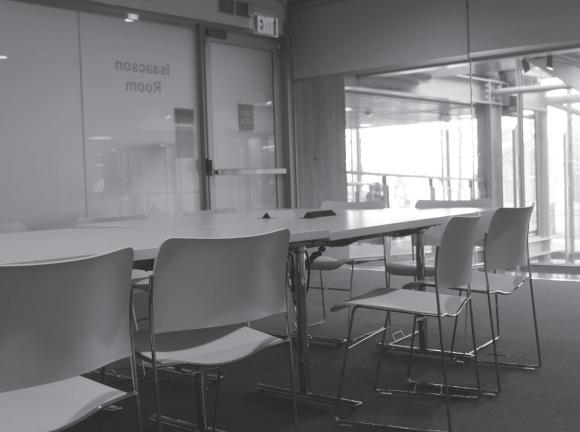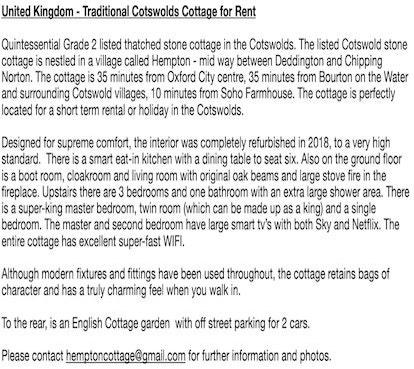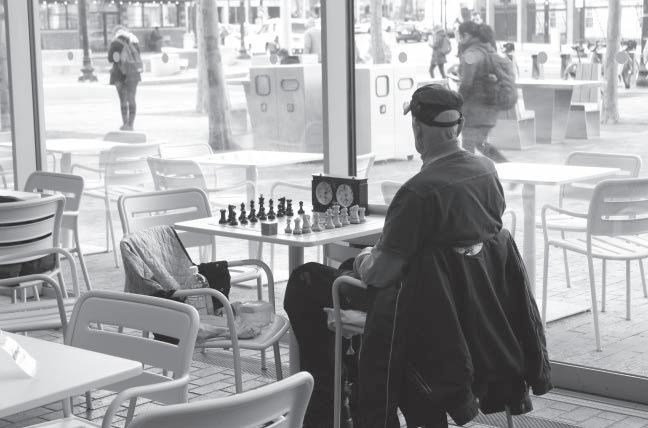
16 minute read
Editorial
The Crimson Edi orial board Beyond the Lieber Allegations
Last week, University Professor Charles M. Lieber was charged in federal court for “making materi ally false, fictitious and fraudulent statements” to U.S. government agencies. The lawsuit filed by the federal government claims that Lieber, who has since been placed on “indefinite” paid administra tive leave, signed contracts beginning in 2011 to participate in China’s Thousand Talents Plan for personal financial gain. But the issue at stake is larger than a professor hiding funding or personally receiving illegal payments for research — the TTP isn’t any old foreign entity. Es tablished in 2008 by the Chinese government to bring in scientists from around the world, it has been deemed by the U.S. government to be a danger to national se curity.
It’s not an isolated incident either. The Chinese government has been conduct ing a broader program of academic espionage against the U.S. and its research institutions.
This espionage has most notably in cluded attempts to insert Chinese scholars into research programs dealing with sensitive information.
Supplying sensitive information in this context is an especially grave of fense given the Chinese government’s past record as an unethical actor.
It’s not just intellectual property theft; the Chinese government has dis played political and military recklessness in the South China Sea and has gone so far as to perpetrate the internment and “re-education” of the Uighur ethnic group.
Lieber’s alleged acts run contrary to the spirit of our University and warrant clear denunciation — something Har vard has not explicitly or publicly offered.
He not only undermines his own aca demic and civic integrity, but draws into question that of the University and sci entific research more broadly. But given this broader context, Lieber’s case must be the beginning of a broader process of reflection.
Harvard must seek to carefully bal ance its first principles of open cultural exchange and the pursuit of knowledge, while also making sure that it has ade quately safeguarded against similar cases.
To that end and in response to the FBI and NIH launching national investiga tions into academic espionage this past year, Harvard has established two new oversight committees dedicated to re viewing sensitive research projects. But we ask still more.
Harvard must not only address the actions and susceptibilities of its affili ates but its own institutional ties to a regime whose abuses go far beyond intellectual property theft.
As we have previously opined, in cas es where Harvard holds financial ties to ethically dubious regimes, the Universi ty must seriously consider the extent to which it serves to legitimize these actors and their abuses.
Yet still more broadly, we must ask what systemic factors have allowed the Chinese government to take advantage of American research institutions.
After all, as of November, more than 70 research institutions were investi gating potential cases of academic espionage, almost all of which involved Chinese researchers and scholars.
It would seem that the increasing presence of Chinese researchers and funding at U.S. institutions is partially being driven by the insufficient number of American-born scientists the U.S. pro duces.
Perhaps one silver lining of the Lieb er case will be increased consciousness about our own national deficiencies in this field.
While Harvard must condemn and combat China’s academic espionage, it is critical that the rhetoric denouncing the Chinese state and its actions does not de volve into blanket criticism or stereotyping of Chinese people.
Chinese citizens are neither person ally responsible for their government’s actions, nor do these individuals nec essarily support them. Any totalizing Cold War rhetoric that attempts to erase this distinction would be not only mor ally reprehensible, but would also undermine the open pursuit of knowledge and innovation Harvard is supposed to champion.
We must make a conscious effort to combat rhetoric and attitudes that gen eralize along racial or ethnic lines and which impede vital intellectual ex change.
This staff editorial solely represents the majority view of The Crimson Editorial Board. It is the product of discussions at regular Editorial Board meetings. In order to ensure the impartiality of our journal ism, Crimson editors who choose to opine and vote at these meetings are not involved in the reporting of articles on similar top ics.
Submit an Op-Ed Today!
The Crimson @thecrimson
COL UMN
I Want To Think Less About Food
Here’s the moment I began to hate my body: I am twelve years old, standing next to one of my friends in front of the mirror in the lock er room after track practice. She, like the other girls in our school who were rou tinely called beautiful, was stick-thin. Comparing the size of our thighs, I real ized that I was not.
Suddenly, I became convinced that my physical form was inferior to hers; my legs began to seem like a personal failing. From there, I undertook the project of correcting what I saw as wrong with my body; mainly, that I wasn’t medically un derweight.
Food, instead of something to enjoy, became a collection of macronutrients. In some ways, this line of thinking had already been drilled into me by my moth er, a registered dietician.
However, her well-meaning advice about eating a balanced diet had been twisted by my own self-loathing into something much more sinister; a bowl of chocolate ice cream was now reduced to 30 grams of sugar, 14 grams of fat, and more calories than I wanted to think about. By Rebecca E.J. Cadenhead
And if I ate that bowl of ice cream, it would mean almost overwhelming guilt; I had poisoned my body, and there would be consequences.
By the time I had entered high school, this way of viewing food had been rein forced by years of exposure to online dieting culture.
My Instagram feed was filled with references to “clean eating”, my You Tube recommendations were filled with videos titled “what I eat in a day”, and “how I lost 20 pounds in 6 months”. I was obsessed with eating a diet free from any “unclean” foods, convinced that if I were just a little skinnier, I would finally be worthy.
For the most part, my efforts were ap plauded. After all, there’s nothing visibly wrong with someone who regularly eats salad, so it took me too long to realize the truth: I had an unhealthy relationship with food.
At the time, “unhealthy” was proba bly the last word people would have used to describe me; I was known for eating healthily.
This image was heavily reinforced by the presence of my mother, who fre quently gave nutrition talks at my high school.
Outwardly, I was a role-model. Inter nally, I felt awful, all the time. When I was particularly stressed, I starved my self.
Eating disorders are a disease; to be afflicted with one is to have caught a con tagion, and the virus is everywhere. Current media messaging tells us eating a balanced diet is the way to nirvana; our supermarket checkout aisles are stocked with magazines filled with tips for eating better (read: losing weight) from beauti ful (read: skinny) celebrities.
I see the symptoms of the illness in my friends all the time: passing out after eat ing only half a salad the entire day, or taking punishingly long runs in order to lose an invisible amount of weight.
Ironically, if divorced from context, a lot of the things these girls do would be viewed positively, perhaps even as selfcare.
This only underscores that our ideas of what being “healthy” looks like can obscure what is actually self-harm.
These narratives pretend to promote a “healthy lifestyle”, but are almost al ways actually about weighing less. Behaviors that are clearly harmful (drug addiction, intermittent fasting that bor ders on starvation, bizarre “cleanses”)
are tolerated, so long as the person doing them fits a physical mold. Case in point: The periods when I was most unkind to my body — and when, as a result, I was the thinnest — were also the times when I received the most compliments. My physical and mental health were always secondary to how I looked.
I wish I could tell you that I educated myself on the body-positivity movement, or went to see a therapist, or did some other kind of personal work, and that’s how I got better.
But that wouldn’t be true. I no lon ger skip meals, and for the most part, I’m much happier with my body. Still, I think there might always be a part of me ready to punish myself.
We are often encouraged to think about the food we eat. Americans, after all, have a junk food problem, and may be a little more mindful eating would improve our health outcomes.
But I would like to think about what I eat a little less, and I encourage others to do the same.
The Rigged Electoral System Op-Ed
We are now fully immersed in election season with the 2020 presidential elec tion just a few short months away and primaries fully underway. It is, thus, an apt time to revisit one of the great injustices of the Amer ican electoral system, which is the mistreatment and disenfranchisement of the massive prison population in our country.
Senator Bernie Sanders is currently the only presidential candidate calling for granting all in carcerated Americans the right to vote. Yet, not only do incarcerated Americans lack the right to vote but their bodies are often used to further the agendas of those responsible for the growth of the modern carceral state. By Jacob A. Fo tinsky
Incarcerated Americans are counted in the districts where they are imprisoned and not in the districts where they are registered to vote. This fundamentally undemocratic policy has det rimental consequences on those whose votes are exploited.
Either prisoners should be granted the right to vote — which I believe is the right thing to do — or they should not be counted for apportionment. It is immoral and undemocratic to count those who are denied the right to vote as citizens for district apportionment.
Elected officials are meant to serve their con stituents and the public. The only mechanism by which constituents are able to ensure that their representatives are truly serving their interests is by voting them out.
However, individuals who are counted in dis tricts where they cannot vote do not have this ability. In fact, they are often served by represen tatives who advocate positions diametrically opposed to their own.
Imagine a district that includes a massive pris on system run by a for-profit private prison corporation. In such a district the only voters would be the employees of the prison and of the corpo ration imprisoning the overwhelming majority of the district’s residents. The profiteers of the pris ons would elect someone intended to represent the prisoners themselves.
Yet clearly those voting would have drastically different interests to those whom the representa tive is meant to represent.
This is not just a hypothetical; in smaller dis tricts, this is reality. In Anamosa, Iowa, a district with a massive prisoner population, only 58 peo ple vote, despite there being 1,400 census-recorded residents.
This means each voter in Anamosa has about 25 times more political clout than the typical American voter.
Allowing these districts with large prison populations to count their prisoners for political representation is the modern-day equivalent of the Three-Fifths Compromise. Though it is often rightfully lamented that slaves were only counted as three-fifths of a person, it is important to re call that it was the abolitionists who argued that slaves should not be counted in congressional apportionment and it was the slaveholders who pushed to count them.
Southerners wanted slaves to count so that they could inflate their representation in Con gress. It was deemed unfair to count them as full people so they were only considered three-fifths of their white counterparts. We consider this to be incredibly heinous yet say nothing about the apportionment of the incarcerated who count as full people for purposes of allotting representa tion.
In 1790, there were 700,000 slaves in Ameri ca. None of them had the right to vote, yet threefifths of them also had their votes stolen a second time because they were still counted in district apportionment.
As of 2013, there were 2,220,300 incarcerat ed adults. Similarly, they do not have the right to vote, yet every single one of them has their vote stolen when they are counted in district appor tionment.
Just as the slaves were then represented by their slaveholders, prisoners today are often rep resented by the authors of the policies responsible for sending them to prison.
A manifestation of this problem that hits closer to home, albeit much less seriously, is that college students, too, are counted in districts in which they largely do not vote and often are served by politicians with interests very different from their own. We may take advantage of the incredi bly progressive Cambridge, yet some schools with just as large a liberal student body are surround ed by conservative voters and politicians. And by counting the students as residents of those dis tricts, they are exploited to advance an agenda that they do not have the power to resist.
Issues of district apportionment and who counts as being represented might not be as ex citing as prison divestment or sentencing reform, but they are nonetheless critical to treating in carcerated people fairly and for our democracy to function properly. As we progress into election season and people continue to debate whom to vote for, it is important to remember that the sys tem is rigged against those behind bars; they are unfairly barred from voting and deliberately mis represented.
UC FROM PAGE 1 UC to Meet Sunday for First Time
The Harvard Undergraduate Council in the past has held their meetings in the Isaacson Room in the Smith Campus Center. Since the start of the semester, there have been no meetings. AIYANA G. WHITE—CRIMSON PHOTOGRAPHER

they want to improve the council’s communication with students and its “legitimacy” in the eyes of the student body.
“We should focus on trying to make sure we’re really connecting with people and having some kind of sense of legitimacy among the students,” UC representative Jack M. Swanson ’22 said.
Jordan said she believes students often do not notice some of the UC’s projects. “I think that a lot of the student body doesn’t completely know — and it’s not their fault — all the functions and benefits that the UC provides weekly for, and the services that the UC provides for the students,” Jordan said. Brennan agreed and said he wants the council to be more responsive to student concerns. “I think that everybody on the UC tries their hardest to make sure that people are well represented, and that we are hearing the voices of the people, and we’re trying to respond to that as best as possible,” Brennan said.
During their campaign, Mathew and White-Thorpe proposed creating a new “Unity Caucus” that would allow students from outside the UC to collaborate with representatives on projects.
UC treasurer Noah Harris ’22, co-chair of the council’s Black Caucus this semester, said he is excited about the possibility of working with other members of the student body. “We’re going to see if we can bring in different voices than the ones that are normally heard, and then, use those to give students a voice,” Harris said.
sharon.xu@thecrimson.com
IOWA FROM PAGE 1 Harvard Affiliates Caucus in Iowa
what happens in the early states.”
Recent polling showed United States Senator Bernie Sanders (I-Vt.), former Vice President Joseph R. Biden Jr., former South Bend, Ind., Mayor Peter P. M. Buttigieg ’04, and U.S. Senator Elizabeth Warren (D-Mass.) running in a close four-way race in Iowa.
U.S. Senator Amy J. Klobuchar (D-Minn.) also picked up traction among Iowans in recent weeks, according to an Emerson College poll.
Iowa is one of only six states that uses caucuses — as opposed to voting in traditional primaries — to determine how its delegates at the national party conventions will vote. In caucuses, which are run by state parties, voters congregate in groups and lobby undecided attendees to to support their prefered candidates at precincts around the state.
A number of Harvard affiliates participated in this year’s caucus process.
Nina B. Elkadi ’22, a lifelong Iowa City resident, is taking a leave of absence from Harvard this spring in order to participate in the Democratic primary process. In addition to working as a full-time organizing intern for the Elizabeth Warren campaign, Elkadi was selected as a precinct captain for an Iowa City precinct.
As precinct captain, Elkadi — a member of the Harvard College Democrats and Harvard for Warren — was responsible for speaking on behalf of the Warren campaign at her precinct and convincing caucus goers to support her candidacy.
“I need to be here. I need to be completely here, not even a little bit thinking about Harvard, or classes, or anything like that,” Elkadi said. “Being on Harvard’s campus, I can do almost nothing as close to what I can do at home on the field, talking to people I grew up with.”
For the first time in its history, the Iowa Democratic Party also held satellite caucus events around the country where Iowans outside the state could still vote.
At a remote event at the Democracy Center in Harvard Square Monday, Sanders topped other primary candidates with 22 votes from out-ofstate Iowans. He was awarded two delegates.
Warren finished in second place at the Cambridge event with 20 voters and two delegates, Buttigieg finished third with eight votes and one delegate, and Andrew Yang had one voter and received no delegates. Lottie Gidaul — a Wesleyan University freshman who hails from Iowa City — traveled to Cambridge to participate in the remote caucus. Gidal said she was persuaded to support Warren by other caucus goers.
“I make up a lot of my decisions by hearing other people’s perspectives and hearing what they’re excited about,” Gidal said. “My family is very much excited about Warren and a lot of my friends are excited about Warren. Understanding the passion that they have — just getting to feel that — I think that won me over.”spectives and hearing what they’re excited about,” Gidal said. “My family is very much excited about Warren and a lot of my friends are excited about Warren. Understanding the passion that they have — just getting to feel that — I think that won me over.”
joshua,fang@thecrimson.com jasper.goodman@thecrimson.com
The T closes. We don’t.





